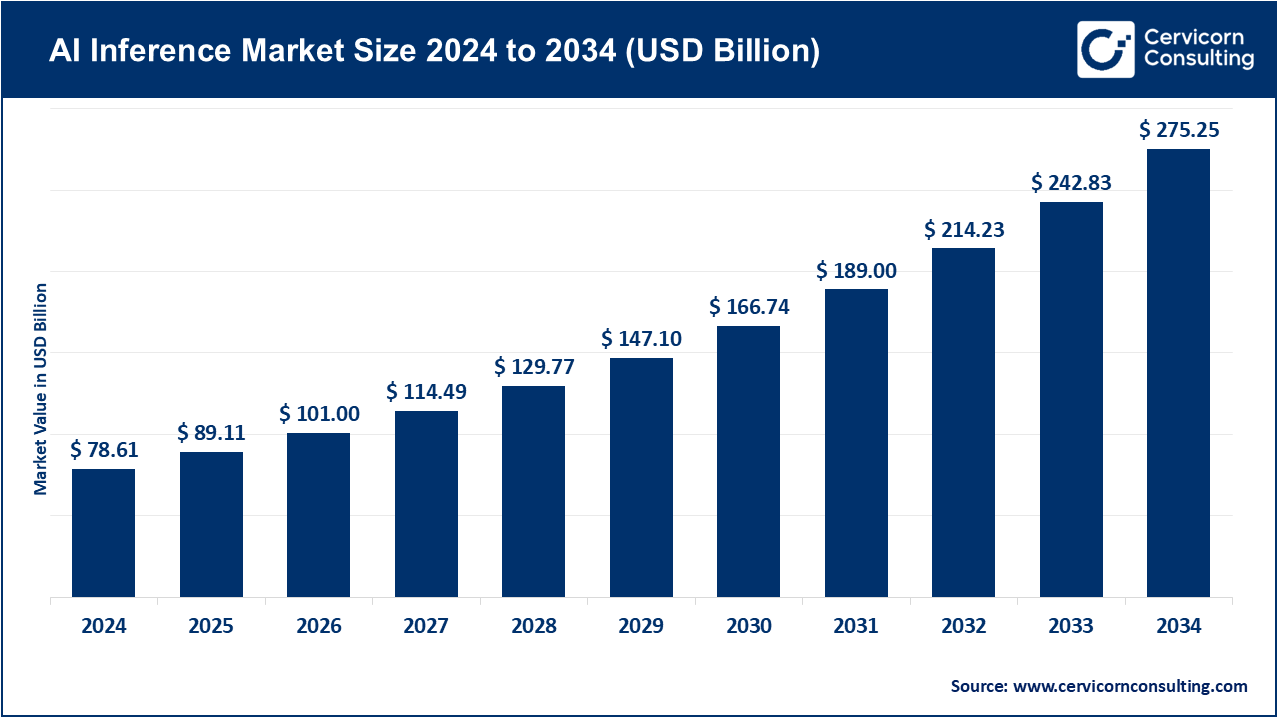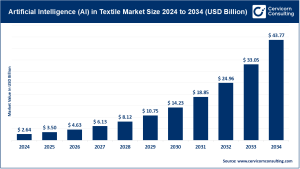AI Inference Market Overview, Trends, and Drivers
The global AI inference market was valued at USD 78.61 billion in 2024 and is projected to reach USD 275.25 billion by 2034, growing at a CAGR of 17.5% (2025–2034). AI inference—where trained AI models are deployed to make real-time predictions—is vital for healthcare, autonomous systems, and industrial automation.
Key Market Trends:
-
AI-driven Healthcare Solutions – Platforms like IBM Watson Health use AI inference for chronic disease monitoring and dosage optimization.
-
Telehealth Integration – Companies like Roche deploy AI-powered injectors for at-home biologic treatments.
-
Edge and On-device AI Expansion – Growth of NPUs and edge computing for real-time processing.
-
Generative AI Adoption – Used in diagnostics, predictive maintenance, and content creation.
-
Sustainable AI Computing – Energy-efficient inference models reducing carbon footprint.
Market Drivers:
-
Rising prevalence of chronic diseases driving AI-enabled diagnostics.
-
Growth of personalized medicine and telehealth ecosystems.
-
Increased R&D investments in edge AI hardware (GPUs, NPUs, FPGAs).
-
Government support for AI innovation in healthcare and smart infrastructure.
-
Expanding 5G and IoT connectivity enhancing AI inference deployment.
Impact:
These trends reshape healthcare (AI-assisted diagnosis), automotive (autonomous driving), and manufacturing (predictive maintenance). North America leads with 45% market share due to robust infrastructure and AI adoption, while Asia-Pacific is the fastest-growing region, supported by digital health initiatives in India, China, and Japan.
Challenges & Opportunities:
High infrastructure costs and energy consumption pose hurdles, but emerging low-power chips and edge solutions offer major growth avenues.
Future Outlook:
By 2034, AI inference will underpin smart healthcare, industrial automation, and autonomous systems, powered by faster chips and decentralized AI ecosystems—transforming how industries process and act on data.
Contact Us for a Detailed Overview

